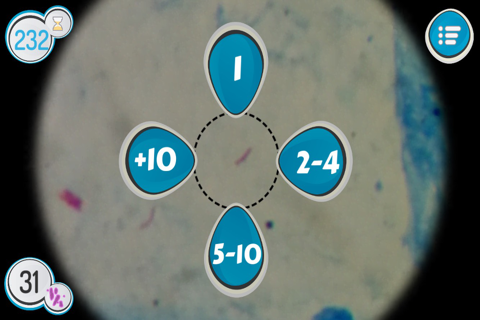
The diagnosis of the tuberculosis disease requires technical experts, but in countries most in need there are not enough specialists... and thats where you come in! As a TuberSpot volunteer you can hunt "bacilli", bacteria that cause tuberculosis in samples images of sputum (a fluid expelled by coughing). In a simple tutorial, we will explain how to distinguish bacilli, which you wil have to "point and shoot". But beware, there are also "artifacts", they look like bacilli, but they are not! The better you do, the higher your score and you will advance in the game. Compete with your friends in the world ranking of TuberSpot and be the first in the top scores!
TuberSpot is a "serious game" developed by researchers at the Polytechnic University of Madrid. Currently the images that you play with are from patients who have already been diagnosed. We use the results of the games to study whether this method is reliable. With a previous game, MalariaSpot, we already checked that the result of combining the clicks of many players is as reliable as the result of a specialist. Will you help us to see if it also works with the samples used to diagnose tuberculosis?
Each year, 10 million people are infected with tuberculosis, a disease caused by bacteria that usually affects the lungs. It is spread through the air. If diagnosed and treated with antibiotics, it is curable. In spite of this, it is responsible for more than one and half million deaths each year: a child dies from tuberculosis every half minute. Most of these deaths, more than 95%, occur in countries with few resources. In Spain there are about 10 cases per day.
You can find more information about our project in www.tuberspot.org and social networks:
Twitter: @MalariaSpot
Facebook: facebook.com/malariaspot
Thanks for collaborating by playing! :)
TuberSpot is backed by the Support Unit for Innovation and the Clinical Microbiology Department of the San Carlos Hospital, the Center for Innovation in Technology for Human Development at UPM (itdUPM), the Center for Biomedical Research (CIBER-BBN ) of APOPO and Apps for Time. The project was partially funded by the Spanish Foundation for Science and Technology - Ministry of Economy and Competitiveness



